Abstract
The question of postgraduate training for medical practice in rural communities has never been answered to everyone's satisfaction. Is there a core curriculum that would prepare a doctor to start up practice? The answer is no, but there is a better educational model that will foster physician attitudes, behaviour, and skills suitable for small-town practice. This article outlines some of the principles of a curriculum, the experiences required of a resident, and the setting and faculty that will make good small-town medicine happen. It addresses the changing illness and injury patterns of a modern rural community and the effect that these will have on the content of practice in the future.
Keywords: rural practice, core curriculum, medical education
Full text
PDF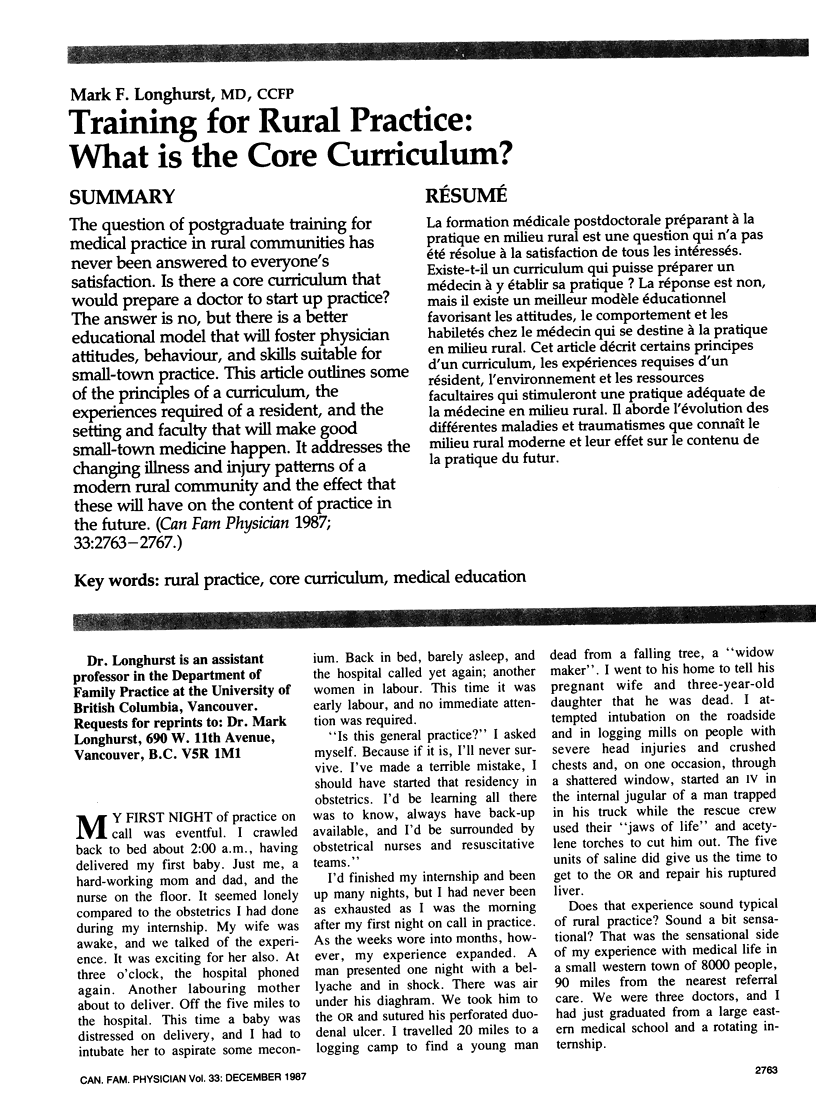
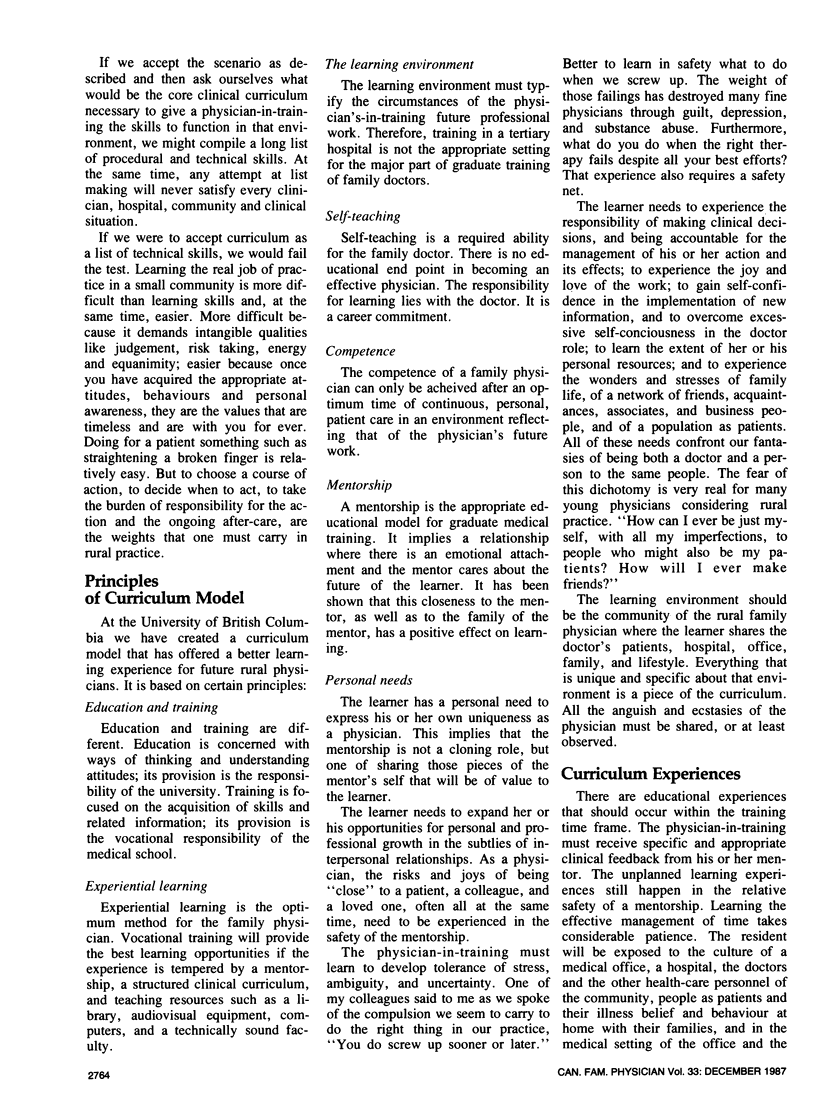
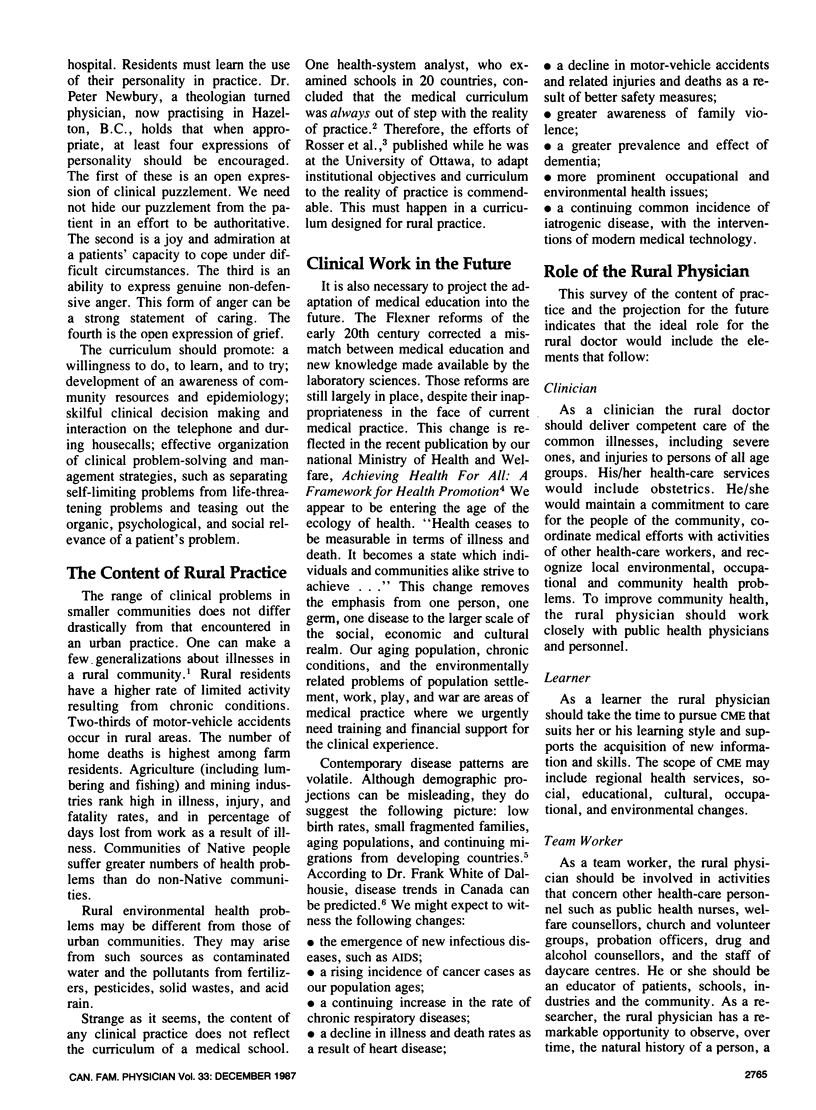
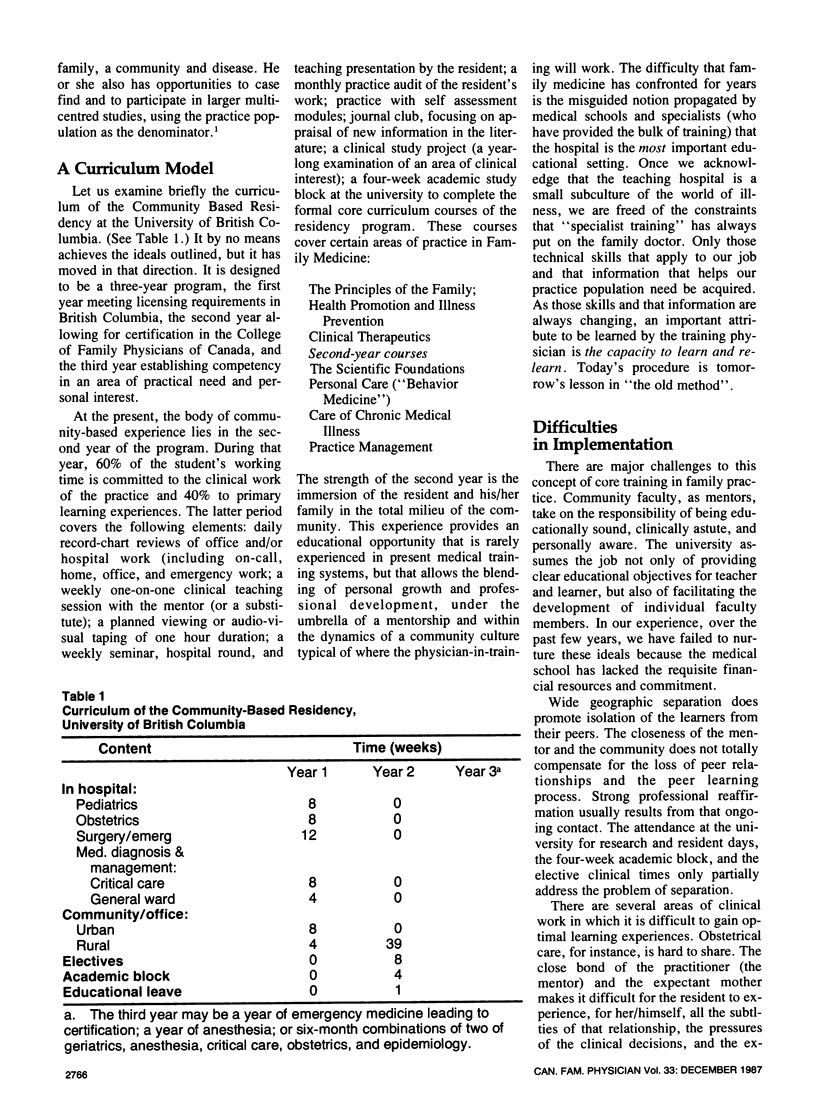
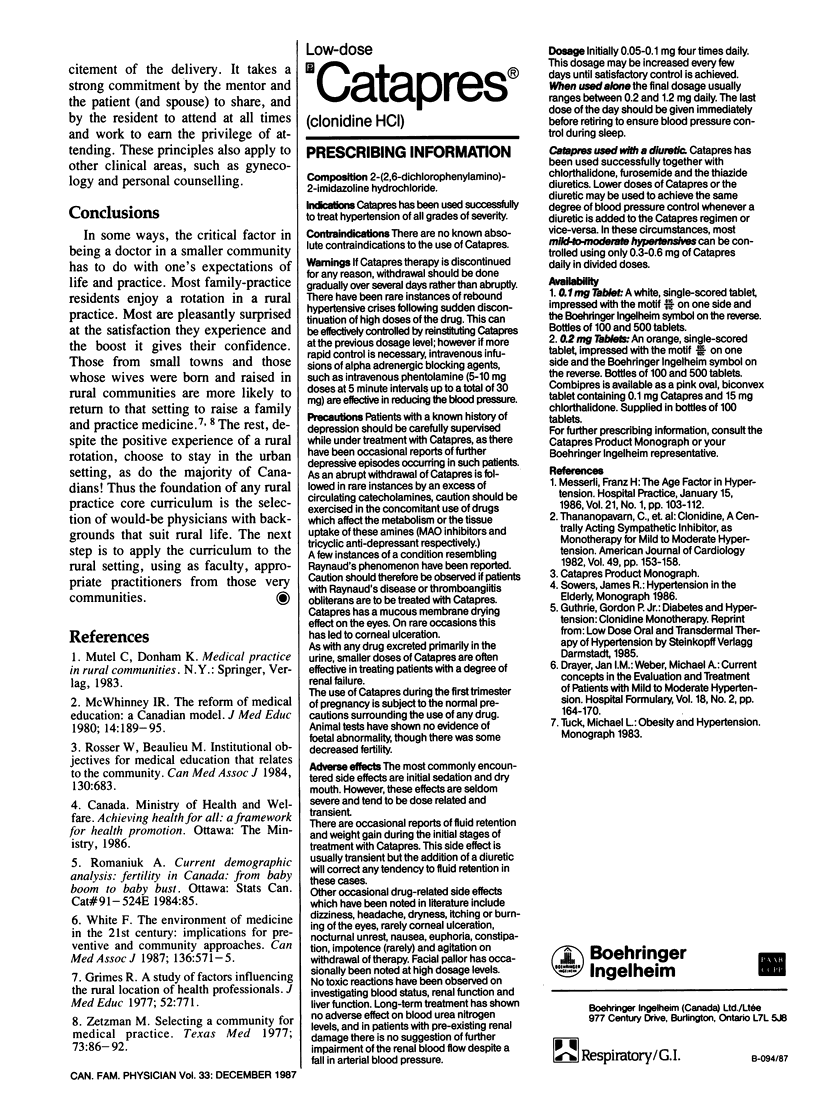
Selected References
These references are in PubMed. This may not be the complete list of references from this article.
- Grimes R. M., Lee J. M., Lefko L. A., Hemphill F. M. A study of factors influencing the rural location of health professionals. J Med Educ. 1977 Sep;52(9):771–773. doi: 10.1097/00001888-197709000-00010. [DOI] [PubMed] [Google Scholar]
- McWhinney I. R. The reform of medical education: a Canadian model. Med Educ. 1980 May;14(3):189–195. doi: 10.1111/j.1365-2923.1980.tb02251.x. [DOI] [PubMed] [Google Scholar]
- Rosser W. W., Beaulieu M. Institutional objectives for medical education that relates to the community. Can Med Assoc J. 1984 Mar 15;130(6):683–689. [PMC free article] [PubMed] [Google Scholar]
- White F. The environment of medicine in the 21st century: implications for preventive and community approaches. CMAJ. 1987 Mar 15;136(6):571–575. [PMC free article] [PubMed] [Google Scholar]
- Zetzman M. R., Stefanu C. Selecting a community for medical practice: a study of factors, characteristics, and preferences among practicing physicians, family practice residents and medical students. Tex Med. 1977 Jan;73(1):86–92. [PubMed] [Google Scholar]


